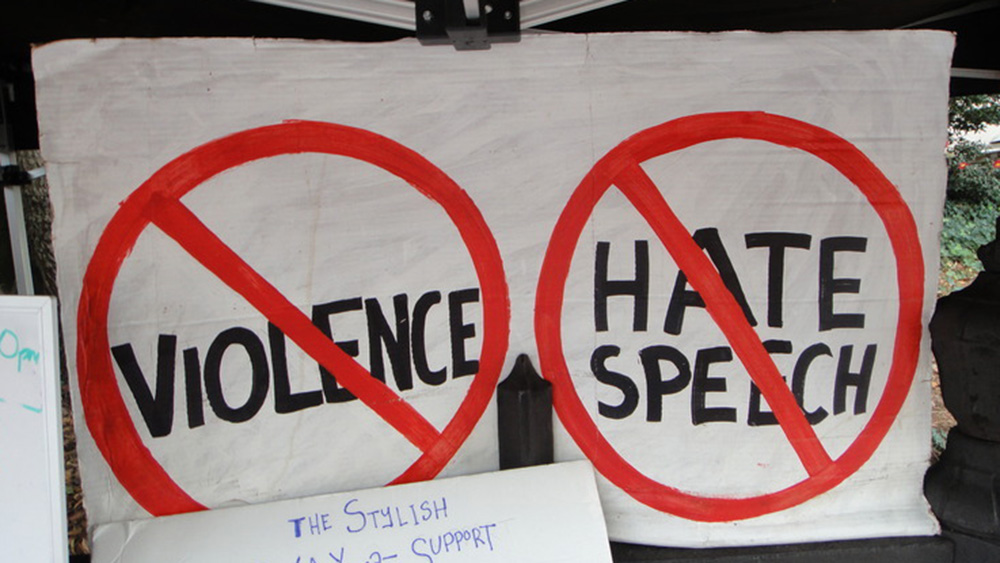[vc_row][vc_column][vc_column_text]

Mark Zuckerberg at TechCrunch Disrupt 2012. Credit: JD Lasica
We, the undersigned, welcome the consultation on Facebook’s draft charter for the proposed oversight board. The individuals and organisations listed below agree that the following six comments highlight essential aspects of the design and implementation of the new board, and we urge Facebook to consider them fully during their deliberations.
The board should play a meaningful role in developing and modifying policies: The draft charter makes reference to the relationship between the board and Facebook when it comes to the company’s content moderation policies (i.e. that “Facebook takes responsibility for our (…) policies” and “is ultimately responsible for making decisions related to policy, operations and enforcement” but that (i) Facebook may also seek policy guidance from the board, (ii) the board’s decisions can be incorporated into Facebook’s policy development process, and (iii) the board’s decisions “could potentially set policy moving forward”. As an oversight board, and given that content moderation decisions are ultimately made on the basis of the policies which underpin them, it is critical that the board has a clear and meaningful role when it comes to developing and modifying those underlying Terms of Service/policies. For example, the board must be able to make recommendations to Facebook and be consulted on changes to key policies that significantly impact the moderation of user content. If Facebook wishes to decline to adopt the board’s recommendations, it should set out its reasoning in writing. Providing the board with such policy-setting authority would also help legitimize the board, and ensure it is not viewed as simply a mechanism for Facebook to shirk responsibility for making challenging content-related decisions.
To ensure independence, the board should establish its own rules of operation: Facebook’s final charter is unlikely to contain all of the details of the board’s internal procedural rules and working methods. In any event, it should be for the board itself to establish those rules and working methods, if it is to be sufficiently independent. Such rules and working methods might include how it will choose which cases to hear, how it will decide who will sit on panels, how it will make public information about the status of cases and proceedings, and how it will solicit and receive external evidence and expertise. The final charter should therefore set out that the board will be able to develop and amend its own internal procedural rules and working methods.
Independence of the board and its staff: The draft charter makes reference to a “full- time staff, which will serve the board and ensure that its decisions are implemented”. This staff will therefore have a potentially significant role, particularly if it is in any way involved in reviewing cases and liaising between the board and Facebook when it comes to implementation of decisions. The draft charter does not, however, set out much detail on the role and powers that this staff will have. The final charter should provide clarity on the role and powers of this staff, including how Facebook will structure the board to maintain the independence of the board and its staff.
Ability for journalists, advocates and interested citizens to raise issues of concern: At present, issues can only be raised to the board via Facebook’s own content decision- making processes and “Facebook users who disagree with a decision”. This suggests that only users who are appealing decisions related to their content can play this role. However, it is important that there also be a way for individuals (such as journalists, advocates and interested citizens) to be able to influence problematic policy and raise concerns directly to the board.
Ensuring diverse board representation: According to the Draft Charter, “the board will be made of experts with experience in content, privacy, free expression, human rights, journalism, civil rights, safety and other relevant disciplines” and “will be made up of a diverse set of up to 40 global experts”. While it is important for this board to reflect a diversity of disciplines, it is also integral that it reflects a diversity of global perspectives including different regional, linguistic and cultural perspectives from the various countries in which Facebook operates. The exact board composition will also be dependent upon the agreed scope of the board.
Promoting greater transparency around content regulation practices: Given that the board is a newfound mechanism for regulating content on Facebook and enforcing the company’s content policies, it should similarly seek to demonstrate transparency and be held accountable for its content-related practices. According to the Draft Charter, panel “decisions will be made public with all appropriate privacy protections for users” and “the board will have two weeks to issue an explanation for each decision.” In addition to providing transparency around individual board decisions, Facebook should issue a transparency report that provides granular and meaningful data including statistical data on the number of posts and accounts removed and impacted.
Organisational Signatories
AfroLeadership Center for Democracy & Technology Center for Studies on Freedom of Expression CELE Centre for Communication Governance at National Law University Delhi Committee to Protect Journalists Derechos Digitales Digital Empowerment Foundation Fundación Karisma Global Partners Digital Index on Censorship International Media Support Internet Sans Frontières Internews IPANDETEC New America’s Open Technology Institute Paradigm Initiative PEN America R3D: Red en Defensa de los Derechos Digitales Ranking Digital Rights SMEX Software Freedom Law Center, India Trillium Asset Management, LLC
Individual Signatories
Jessica Fjeld Meg Roggensack Molly Land
Notes to editors
For further information, please contact Charles Bradley, Executive Director at Global Partners Digital ([email protected]). [/vc_column_text][/vc_column][/vc_row][vc_row][vc_column][vc_basic_grid post_type=”post” max_items=”4″ element_width=”6″ grid_id=”vc_gid:1557483094212-3285f4a4-f83a-5″ taxonomies=”136″][/vc_column][/vc_row]





